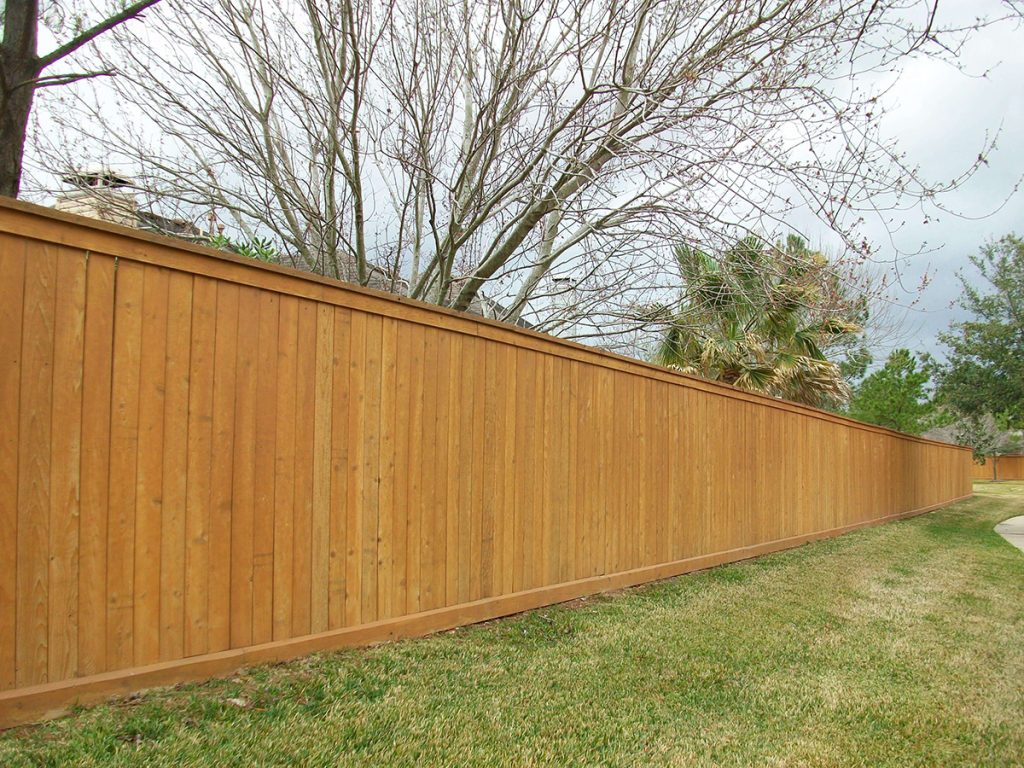Why Texas Fence Only Uses Grade 1 Materials: A Clear Difference That Lasts
This is a story about fences. But it’s not just about wood, metal, and wire. It’s about quality. It’s about doing things right the first time. It’s about Texas Fence—and why we only use Grade 1 materials.
Some builders go cheap. They shop at big box stores, grab the lowest-grade lumber, and slap it together. It’s fast. It’s easy. It looks fine. For a while. But then? Boards twist. Metal rusts. Gates sag. You call for repairs. You spend more. And you wonder why you didn’t do it right from the start.
Texas Fence builds fences that last. Because we only use Grade 1 materials. Because your home deserves better. Because cheap work costs more in the end.
In this article, you’ll see what Grade 1 really means. You’ll learn how other companies cut corners. And you’ll find out why a fence from Texas Fence stands stronger, looks better, and holds up longer than the rest.

What Makes Grade 1 Fence Materials the Superior Choice?
Grade 1 is the gold standard. The best wood. The strongest steel. The thickest wire.
Grade 1 wood has fewer knots. More heartwood. Straighter grain. It stays flat. It resists rot. It holds its shape. That means your fence stays standing, season after season.
Grade 1 chain link is heavy. It’s made from thick, lower-gauge wire. It’s coated in zinc or vinyl. It fights rust. It doesn’t sag. It doesn’t stretch.
Grade 1 iron is all muscle. Thick pickets. Welded panels. Powder-coated finishes. No screws. No rust. Just clean lines and lasting strength.
We use these materials because they work. Because they last. Because you shouldn’t have to worry about your fence.
How Other Fence Companies Cut Corners With Cheaper Materials
Some contractors promise a lower price. They meet it by cutting quality.
They buy pickets with big knots. They buy posts with thin walls. They use 11.5-gauge chain link when they should use 9. They build fences meant to fail.
They shop at Home Depot. They shop at Lowe’s. And you get stock-grade, one-face-graded, low-durability materials.
You might not see it right away. But Houston’s weather will. The sun will dry it. The rain will swell it. The heat will warp it. And that pretty new fence? It won’t be pretty for long.
At Texas Fence, we never pull from retail shelves. We partner with suppliers who meet our strict Grade 1 standards. Every post, every panel, every picket.
Comparing Fence Material Grades: Grade 1 vs. Retail Stock
Not all fences are created equal. Here’s a side-by-side view:
| Material Type | Grade 1 (Texas Fence) | Retail Grade (Big Box Stores) |
|---|---|---|
| Cedar Pickets | Tight knots, both sides graded, mostly heartwood | Loose knots, one side graded, mixed grain |
| Chain Link Mesh | 9-gauge, heavy galvanization or vinyl coating | 11.5-gauge, light zinc coat |
| Iron Panels | 14-gauge steel, powder coated, welded | 18–20 gauge, painted, screw-fastened |
| Posts & Rails | Schedule 40 or better | Thin wall, low-gauge steel |
One lasts decades. The other? Not so much.
Why Lower-Grade Materials Cost More in the Long Run
Cheap fences don’t stay cheap.
Lower-grade wood warps. It cracks. Knots fall out. Panels split.
Cheap chain link stretches. It rusts. Posts bend. Gates sag.
Low-grade iron looks good at first. But rust blooms fast. Screws loosen. Joints fail.
The cost to repair these problems adds up. The time you spend dealing with them adds up. And soon, your bargain fence turns into an expensive mistake.
Grade 1 materials mean fewer fixes. Less stress. More value.
How Texas Fence Sources and Selects Superior Materials
We don’t settle. We select.
We choose kiln-dried Western Red Cedar. It’s dense. It’s beautiful. It’s made to last.
We use fully welded steel. Powder-coated. Clean lines. No rust. No fuss.
We install commercial-grade chain link. Heavy-duty mesh. Thick pipe. Strong ties.
We don’t cut corners. We build them square.
Problems That Arise From Lower-Grade Materials
Cheaper isn’t better. It’s just cheaper.
With cheap wood, you get:
- Knots that fall out
- Warping and twisting
- Cracks and splits
With thin chain link, you see:
- Rust after a few summers
- Mesh that sags
- Posts that lean
With budget iron, you face:
- Rust at welds
- Screws that rattle
- Pickets that bend
These aren’t just cosmetic. They’re structural. They shorten your fence’s life. They waste your time and your money.
How Our Grade 1 Materials Improve Your Fence’s Life
We don’t just build fences. We build long-term value.
Our cedar stays straight. Our chain link stays strong. Our iron stays sharp.
Here’s what that means in numbers:
| Material | Texas Fence Grade 1 Lifespan | Big Box Grade Lifespan |
|---|---|---|
| Cedar Fence | 20–25 years | 10–12 years |
| Chain Link | 25–30 years | 10–15 years |
| Iron Fence | 30+ years | 10–20 years |
Our fences stand the test of time. Others just stand—for a while.
What to Ask Your Fence Contractor Before Hiring
Ask questions. Get answers.
- Where do you buy your materials?
- What grade are the pickets?
- How thick is the chain link?
- Are your panels welded or screwed?
- Do you warranty your work?
If they hesitate, walk away.
Why Texas Fence Builds Better Fences, Not Cheaper Ones
We don’t race to the bottom. We build to the top.
Grade 1 is not our upgrade. It’s our baseline.
We hire skilled teams. We train them. We treat them well. And they deliver great work, every time.
We’ve been doing this since 2003. We’ve earned our reputation the hard way—with honesty, service, and sweat.
You get what you pay for. We make sure what you pay for lasts.
Takeaway: Don’t Let a Cheap Fence Cost You More
A fence isn’t just a line in the yard. It’s protection. It’s privacy. It’s peace of mind.
Texas Fence uses only Grade 1 materials. Because shortcuts don’t last. Because your home deserves better. Because you shouldn’t have to do this twice.
Before you say yes to the lowest price, ask yourself: Will this fence still be standing in 10 years? If the answer isn’t yes, it’s not worth it.
With Texas Fence, the answer is always yes.
Get a quote today. Let us show you the difference Grade 1 makes.








